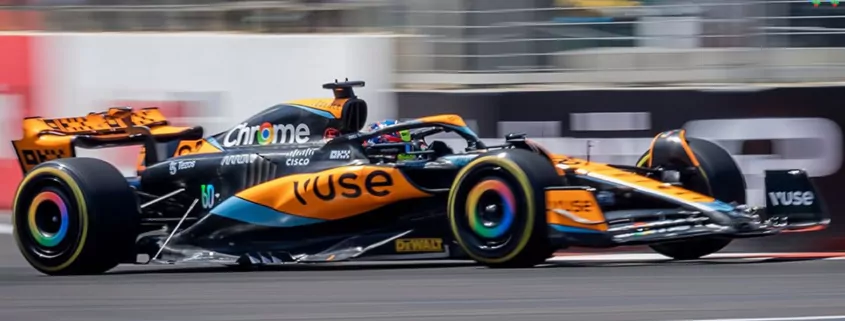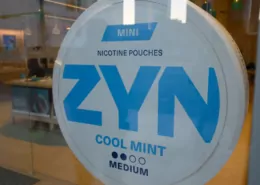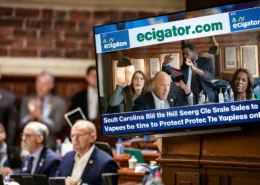Big Vape Brands Bypass Ad Bans Via Global Social Media
Major vape manufacturers are leveraging global social media accounts to bypass national regulations designed to prevent marketing to young people, according to a new study. The research, which focused on the global Instagram account of Vuse, the world’s number one vaping brand owned by British American Tobacco (BAT), reveals how high-profile sponsorships, influencer collaborations, and stylish lifestyle content are used to promote the brand to a massive global audience, effectively circumventing domestic advertising restrictions in countries like New Zealand.
This issue is particularly pressing in New Zealand, which has seen youth vaping rates skyrocket to become among the highest in the world. In 2017, just 3% of New Zealanders aged 15 to 24 vaped daily; by 2024, that figure had surged to 21.3%. While New Zealand has introduced vape advertising restrictions to curb this problem, this new study, published in the journal Health Promotion International, highlights how global digital channels can undermine these domestic efforts.
A Deep Dive into Vuse’s Global Instagram Strategy
Researchers from the University of Queensland analyzed all content—including imagery, audio, and text—posted to the @Vuse.Worldwide Instagram account over a one-year period from August 2023 to August 2024. They assessed marketing strategies by looking for brand and influencer collaborations and posts with high engagement (likes and views).
The study found that Vuse formed several high-profile collaborations as a core part of its marketing strategy, with the most notable being its partnership with the Formula 1 motor racing team, McLaren. As a key sponsor, the Vuse logo is heavily emblazoned on the McLaren F1 car and is frequently promoted on the Instagram account. This cross-promotion is incredibly effective at expanding reach; by sharing content between the two accounts, Vuse’s audience can leap from its own ~17,000 followers to the nearly 14 million followers of the McLaren race team. The four most-viewed video posts in the study all featured this motorsport partnership, with one clip amassing over 225,000 views. This continues BAT’s decades-long partnership with Formula 1, a strategy that dates back to when traditional cigarette advertising was still permitted.
Lifestyle Marketing and Social Media Influencers
The @Vuse.Worldwide account also features numerous other lifestyle and entertainment collaborations. The study identified a series of posts related to music festivals, a long-standing tobacco industry strategy to reach young people. In these posts, Vuse employed DJs, artists, digital content creators, and social media influencers to create stylish and engaging videos and photos.
A particularly popular format was the “Get ready with me” (GRWM) style video, which is especially popular among young women on platforms like Instagram and TikTok. Four of the ten most-viewed posts on the Vuse account were in this style. These videos typically feature young women selecting outfits, applying makeup, and doing their hair, often set to popular music. The vape device itself may only appear briefly – for instance, being slipped into a handbag as the final touch before a night out. However, the researchers note that this subtle placement is powerful, as it “creates an important association between the brand and appealing lifestyles and experiences.” These influencers often shared this content directly with their own followers, further amplifying its reach.
Workarounds, Weak Policies, and Disclosure Issues
The study highlights how vape companies use these global accounts as a “workaround” to bypass stricter domestic regulations. For example, the official @Vuse.UK Instagram account appears to more closely align with UK advertising standards, which permit only “factual” vape content and ban paid influencer marketing and unrelated lifestyle imagery. However, the @Vuse.Worldwide account, while listed as being based in the UK, is used to promote these very brand associations and lifestyle images to a global audience, including those in countries with stricter rules.
Instagram’s own policies on vape marketing are described as difficult to decipher and containing significant loopholes. While the platform bans paid influencer marketing for vape products, these rules do not extend to the brand content posted on a company’s own account. Vuse leverages this by using its worldwide account for brand promotion and then relies on cross-posting to other accounts (like McLaren’s) to reach new audiences without technically engaging in paid advertising on the platform.
Furthermore, the study found a lack of transparency in disclosing paid partnerships. Of the nearly 700 times an influencer or brand was tagged in the Vuse posts, only 14 were disclosed with the #ad hashtag or the official paid partnership tag, as required by Instagram policy.
The Need for Global Cooperation and Stricter Enforcement
The researchers suggest that the intentionally unclear policies of social media platforms enable both the platforms and the industry to capitalize on the “lucrative, instant and borderless sharing” of digital content to new audiences. They conclude that effectively tackling this issue will require a multi-pronged approach:
- Global Cooperation: International collaboration is needed to require social media platforms to prohibit vape marketing more broadly and consistently across all regions.
- Active Monitoring and Enforcement: Breaches of existing policies (like the lack of paid partnership disclosures) need to be actively monitored and enforced to hold both social media platforms and vape brands accountable.
- Application of Domestic Laws to International Content: National laws and regulations must be updated or interpreted to apply to international content that is accessible to their citizens, closing the loophole that global accounts currently exploit.
This study provides clear evidence that in a globalized digital world, domestic regulations alone are not enough to protect young people from the sophisticated and pervasive marketing of vaping products. Without stronger international cooperation and more robust enforcement from social media platforms themselves, the stylish and appealing promotion of these addictive products will continue to reach and influence youth worldwide.
- Read the original content: Vape brands bypass regulations on marketing to young people by using global social media accounts
- Mexico Passes Law to Ban Tobacco Ads, Expand Smoke-Free Zones - August 13, 2025
- Big Vape Brands Bypass Ad Bans Via Global Social Media - August 13, 2025
- UK to Make Vape Sellers Pay for E-Waste Disposal - August 13, 2025








